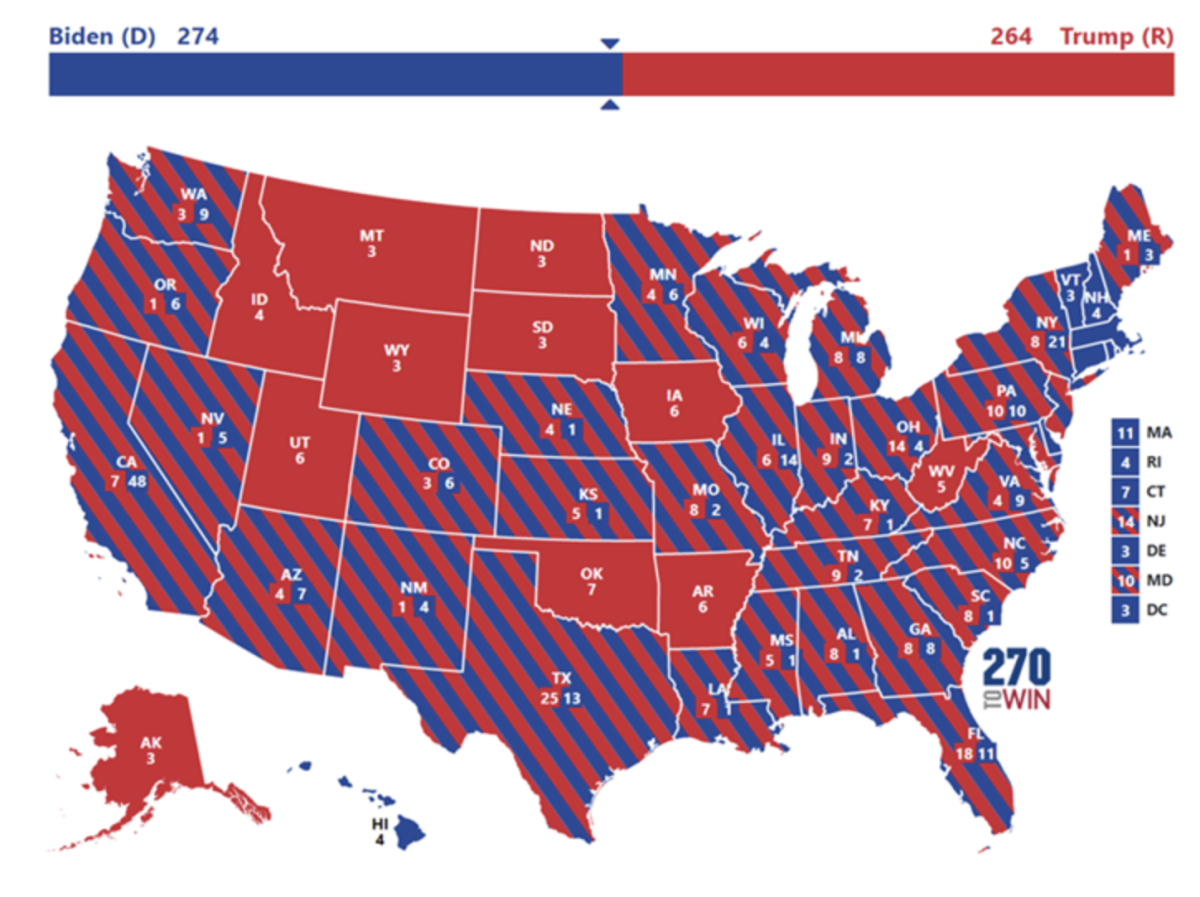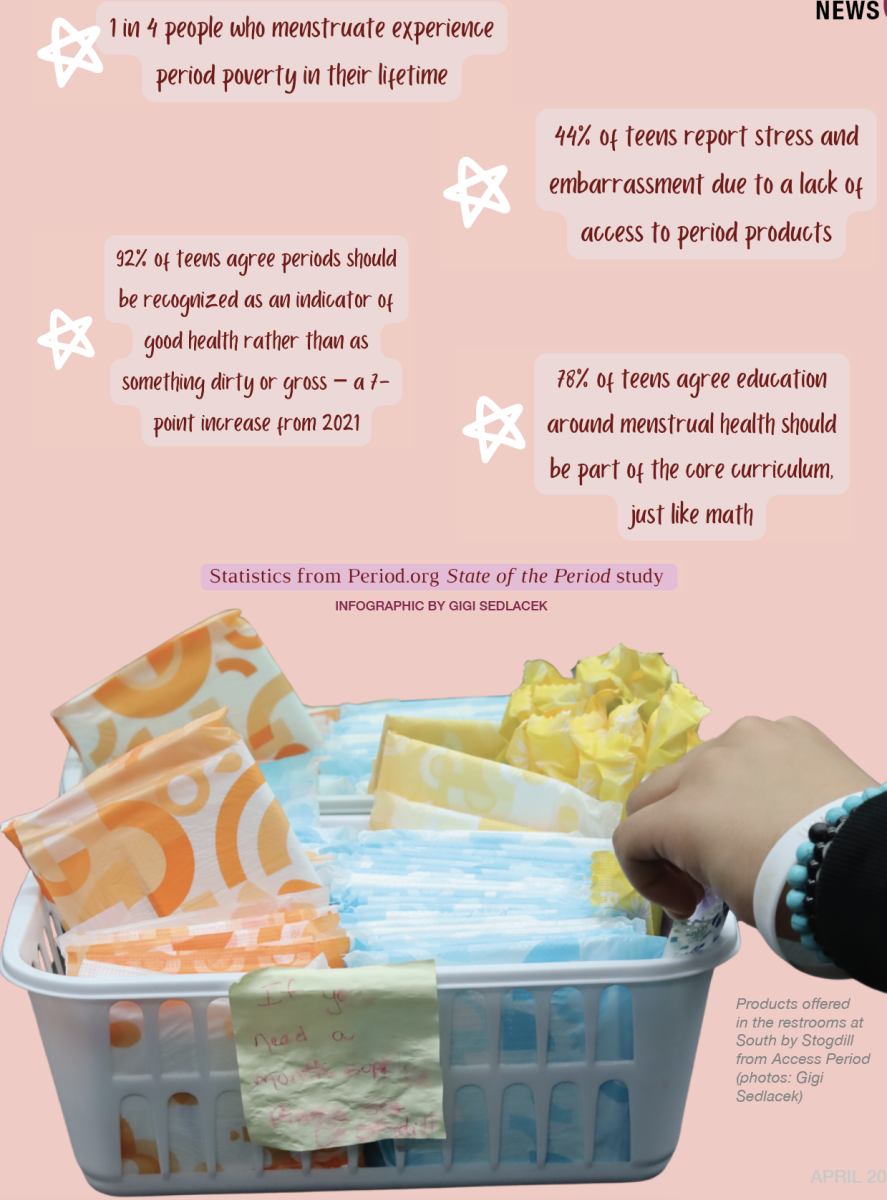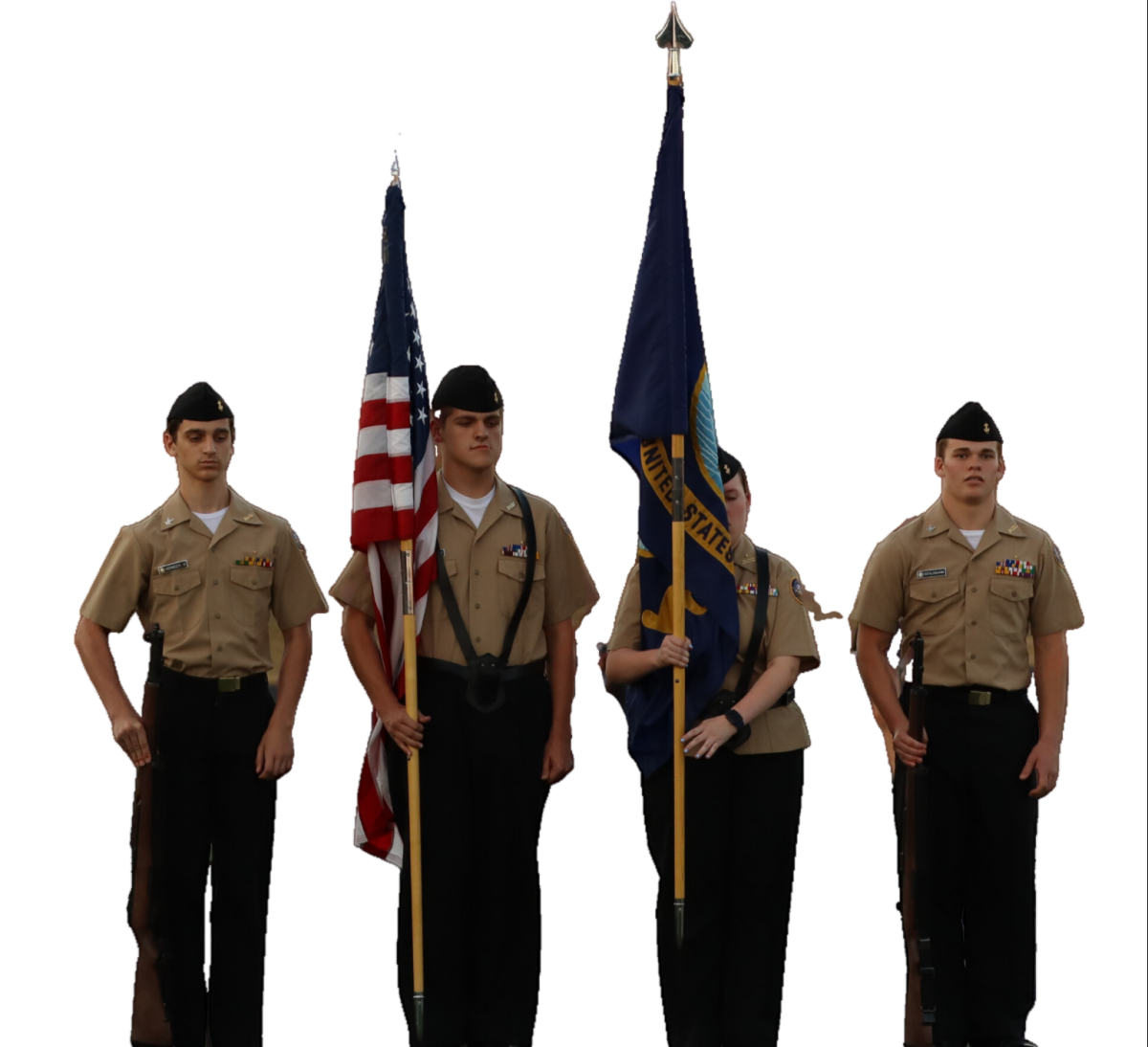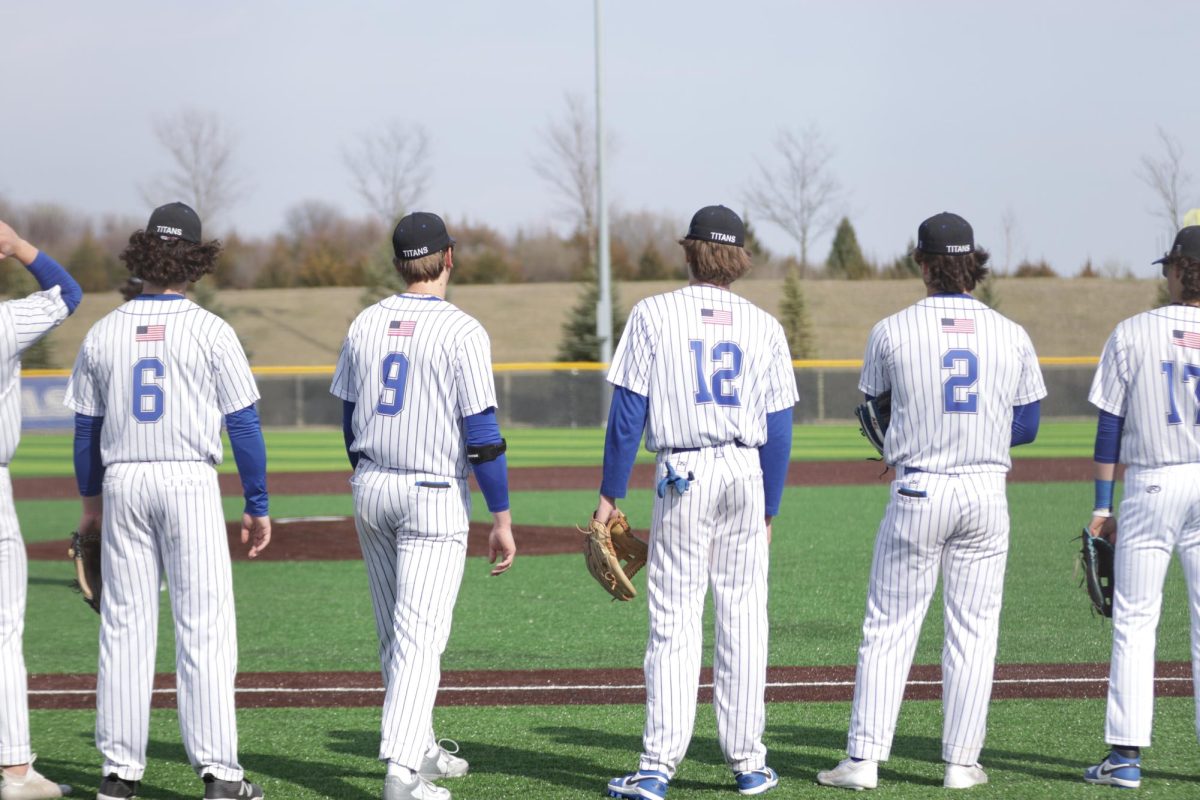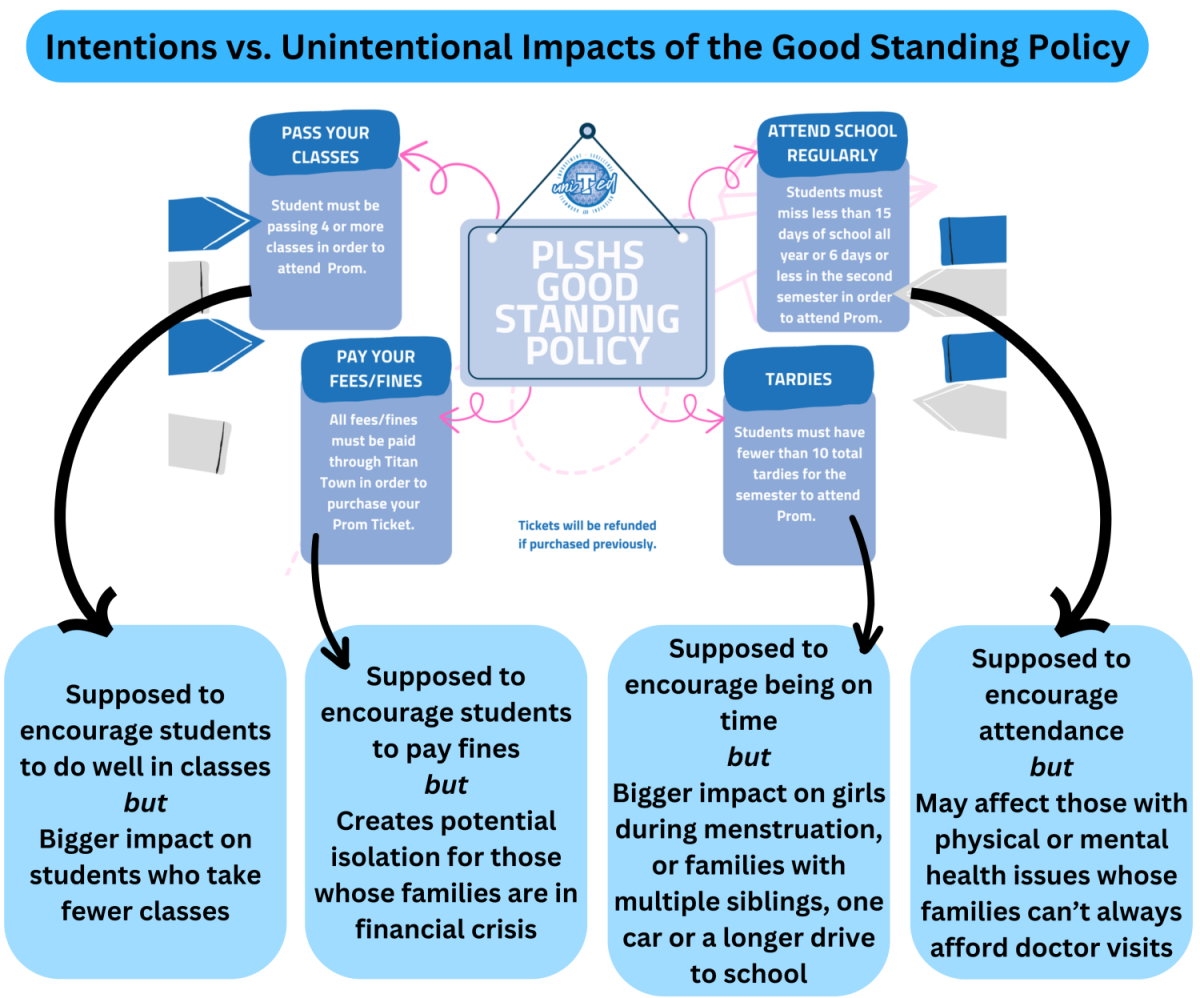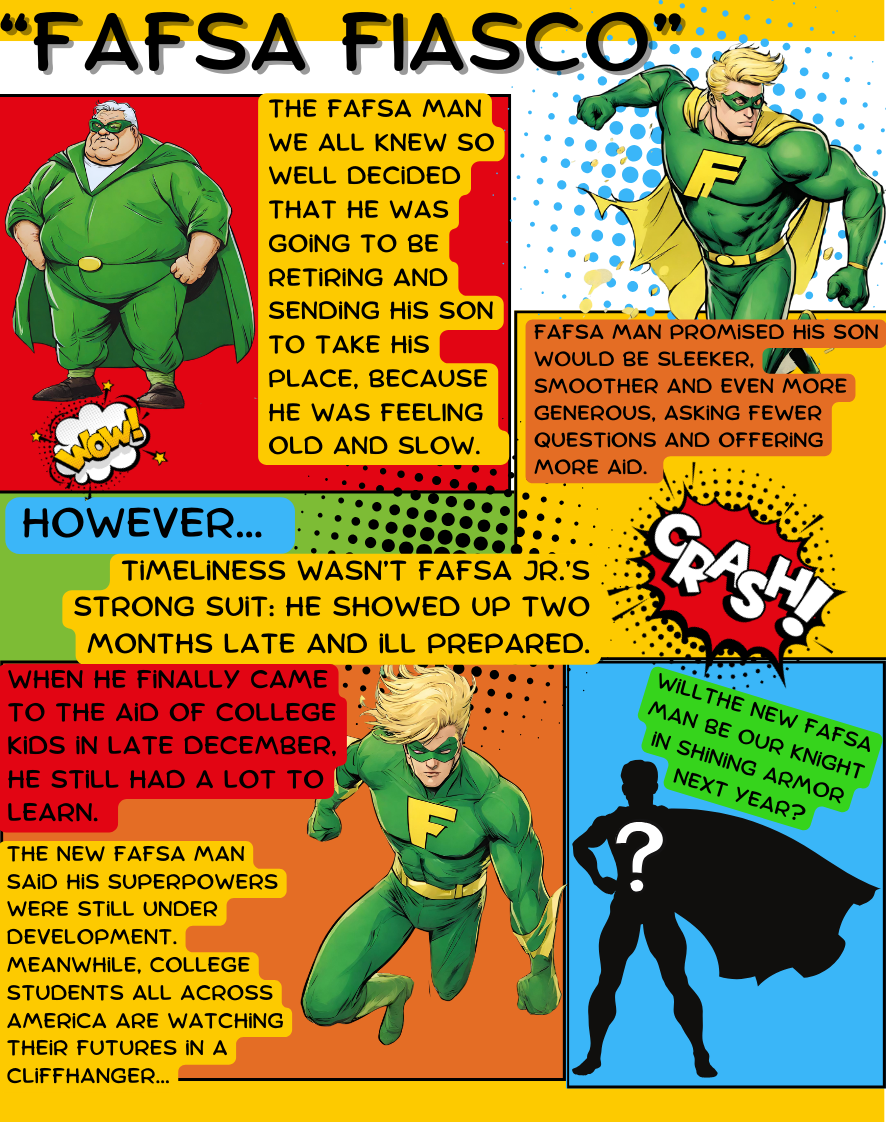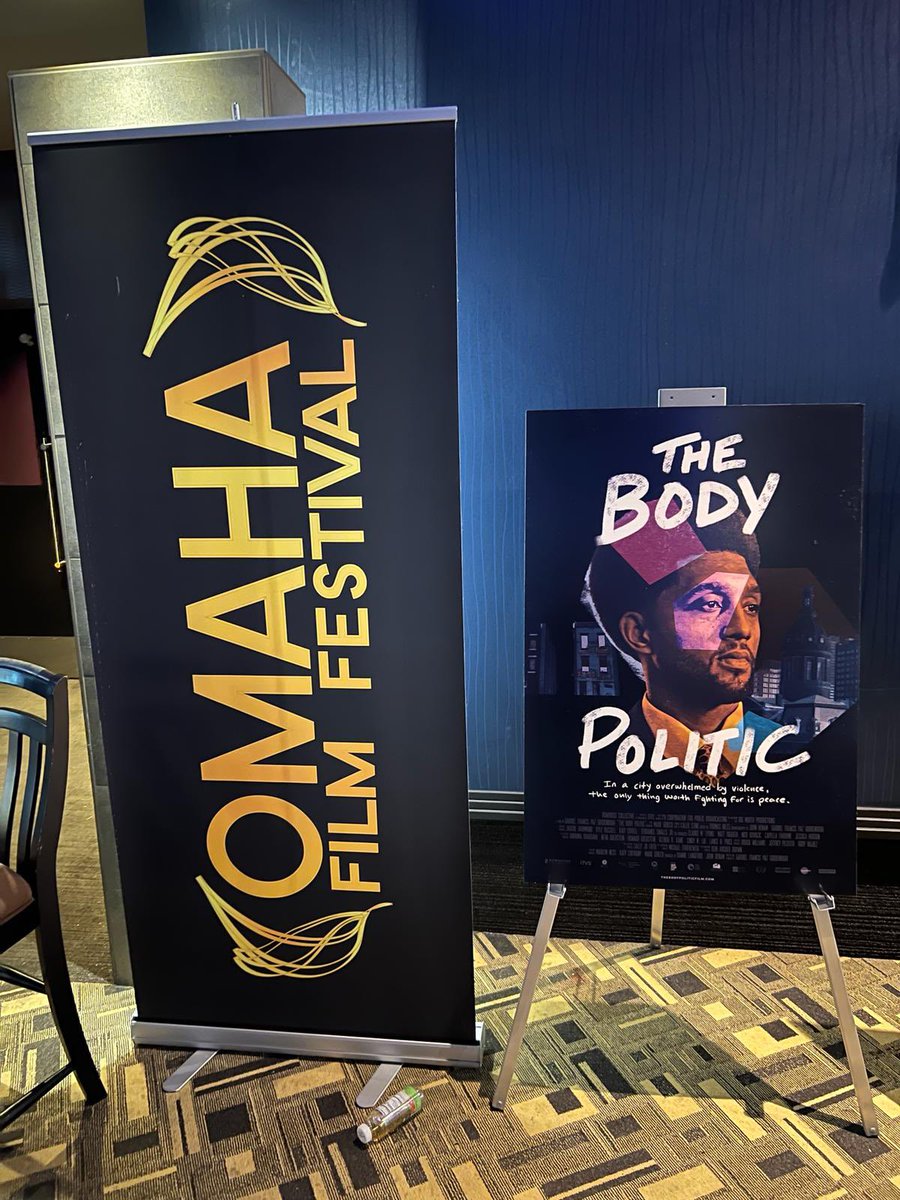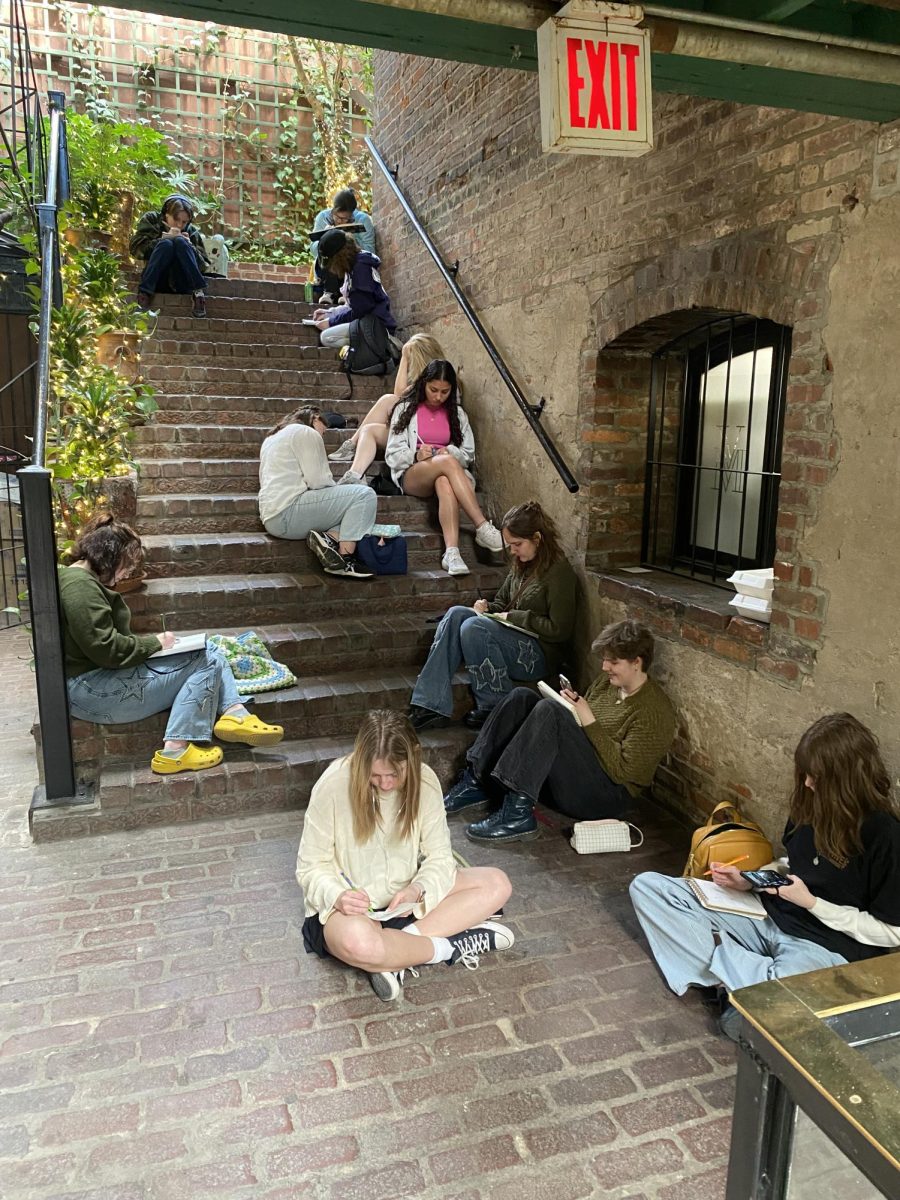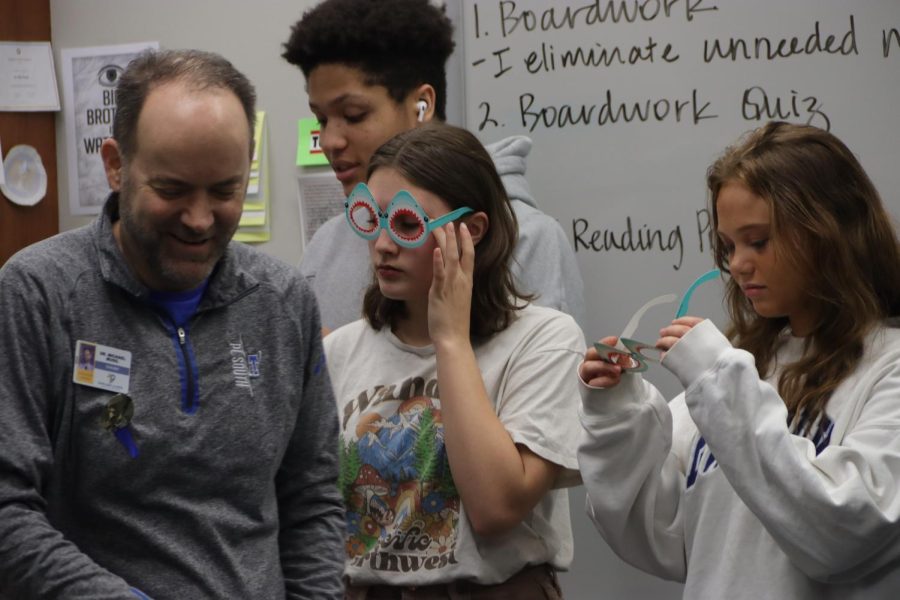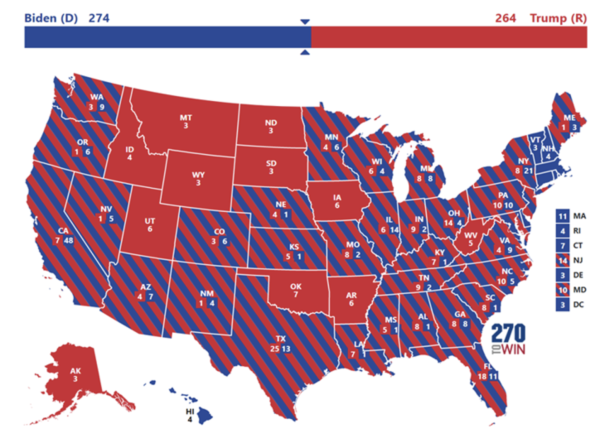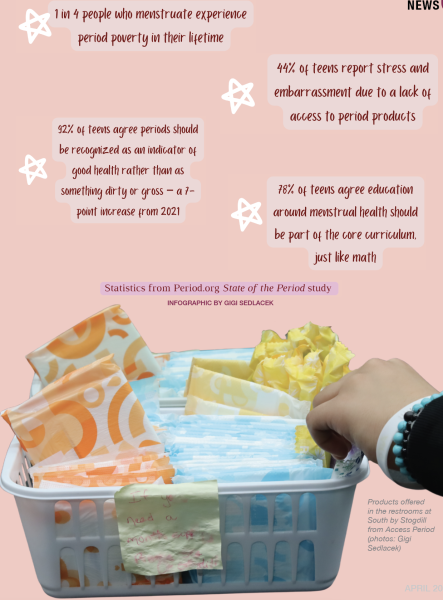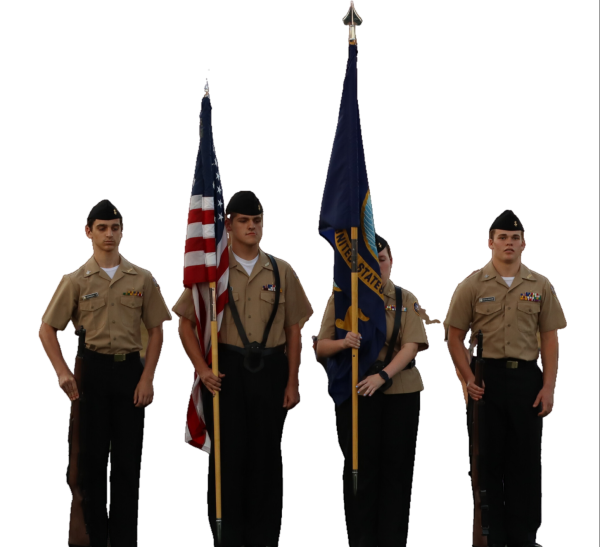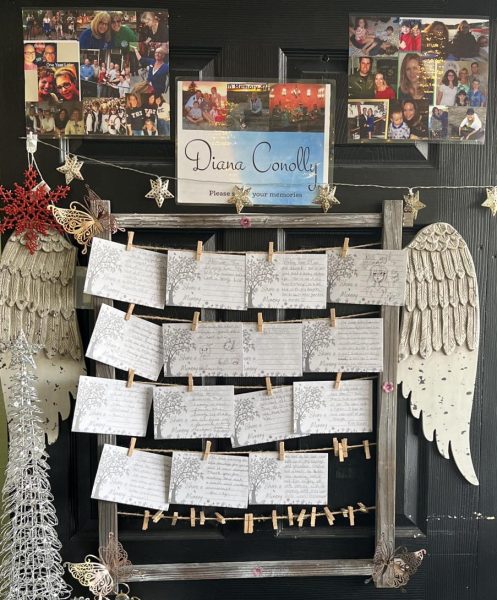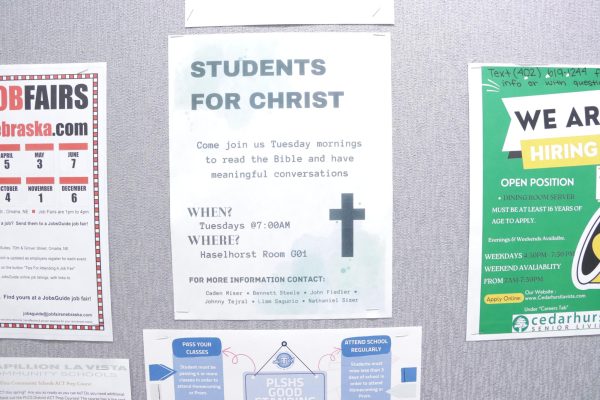Big Brother watches Musil’s sophomore classes
Dr. Musil, left, deals out “punishment” for breaking Big Brother’s rules to Lauryn Boyle, center, and Kitt Steele, right.
Big Brother was watching Dr. Mike Musil’s Honors English 10 classes on the week of March 20-24. Musil’s classes are currently reading George Orwell’s “1984,” and they are experiencing the book as well as reading it. Musil created a set of rules that his students had to follow for the week, similar to the rules enforced by the Party in “1984.”
Similarly to the book, not everybody wants to follow these rules.
“Many start out really resistant, like ‘I’m not going to do this.’ The expectations aren’t horrible, but they’re not enjoyable either,” Musil said. “They have to carry their backpacks on a certain arm, or their backpacks have to be on both shoulders, or when they come into the room, they have to bow at that poster.”
Breaking these rules results in a “punishment,” such as being required to wear a pair of pink cardboard glasses or a party hat for the duration of the class period.
A major theme of “1984″ is constant surveillance by the Thought Police, who are always looking out for even the most insignificant resistance to Party rule. Musil accounted for this by creating his own Thought Police, armed with notepads to report the transgressions of their peers.
“I sent out an email from a ‘PLSHSBigBrother’ account, and I picked at least two [Thought Police] per class. I try to pick somebody who was really resistant, the person who makes the most noise like ‘I’m not doing this, this is stupid.’ I try to pick that person, and then I always try to pick a person who I know will be a good tattle-tale,” Musil said.
In “1984,” with the watchful eye of Big Brother and the Thought Police always looking for rebellious activity, people who aren’t Thought Police show their loyalty by informing authorities about the disloyalty of others. This holds true in Musil’s class as well.
“Some people love to snitch. I got emails from people who weren’t Thought Police at all, just snitching on other people,” Musil said.
Behind the unusual experience of simulating “1984” in the classroom is the realization that the book’s themes of conformity and fearful obedience hold true in some groups, but are rejected by others.
“…For the most part, most people do want to be compliant; they don’t want to get in trouble. And then the other thing is, one of the classes was more compliant than the other class, which seemed to be more resistant… I would say the biggest challenge is just getting them to play along,” Musil said.
Your donation will support the student journalists of Papillion-La Vista South High School. Your contribution will allow us to purchase equipment and cover our annual website hosting costs.

Hello! I'm Tony McGill. This is my senior year, and also my third and final year on staff. I am also on the cross country and track teams. When I'm not...

